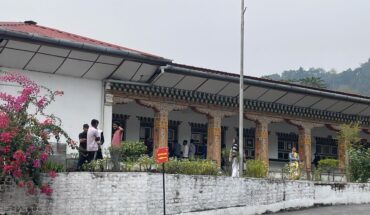
Alleges that the government is focusing more on constituencies represented by the ruling party among others
NGAWANG JAMPHEL
Thimphu
In a series of letters addressed to the Prime Minister and the Royal Civil Service Commission (RCSC), the Opposition Party has brought to light significant governance issues, including concerns about the new certification policy for public transport drivers, inequitable allocation of the Special Development Program (SDP) budget, and critical gaps in the civil service.
These letters, written between August and November 2024, aim to ensure that policies and resource allocation uphold Bhutan’s principles of fairness, inclusivity, and good governance.
In a letter dated August 26, 2024, the Opposition Party raised concerns about the Bhutan Construction and Transport Authority’s (BCTA) new certification policy for public transport drivers and conductors, implemented in late September 2024. While acknowledging the government’s intention to enhance road safety, the Opposition questioned the practicality and necessity of the policy.
The letter argued that the additional certification process introduced unnecessary bureaucracy and burdened drivers and administrative bodies, especially in rural areas. Professional drivers in Bhutan already undergo rigorous testing and licensing, rendering the new policy redundant.
The Opposition Party highlighted how this sudden enforcement, despite being dormant since its mention in the Road Safety and Transport Act of 1999, was implemented without adequate consultation with stakeholders.
The letter also emphasized that the policy could disproportionately impact rural drivers who often lack access to training facilities and financial resources. The Opposition urged the government to reconsider the policy and ensure it is practical, inclusive, and aligned with the realities faced by Bhutanese transport workers.
On October 10, 2024, the Opposition Party wrote yet another letter to the Prime Minister highlighting concerns over the allocation of the SDP budget to Gewogs and Dzongkhags.
The letter pointed out a significant disparity in budget distribution between constituencies represented by ruling party members and those represented by the Opposition. Additionally, constituencies with ministers reportedly received more resources than those without.
The Opposition Party described these disparities as undermining the Constitution’s commitment to equity and fairness. Such practices, they argued, risk exacerbating regional inequalities and alienating communities, particularly those in remote and less politically influential areas.
The letter also noted discrepancies between the Phase II SDP activities and the local priorities identified by Dzongkhag Tshogdus. The Opposition warned that such misalignments could weaken Bhutan’s decentralization policies which aim to empower local governments to address region-specific needs.
To address these issues, the Opposition called for a comprehensive review of SDP budget allocations to ensure fairness and inclusivity for all regions and communities. They emphasized that equitable development is crucial for fostering unity and reducing regional disparities.
Meanwhile, in November last year, the Opposition Party addressed a letter to the Chairperson of the Royal Civil Service Commission (RCSC) raising critical observations about the civil service.
The letter highlighted a shortage of human resources, particularly at the local government level, and the attrition of experienced civil servants as major challenges facing the country’s development agenda.
The Opposition expressed concerns that these gaps could hinder the successful implementation of Bhutan’s 13th Five-Year Plan (FYP). They pointed out that delays in achieving development targets were becoming increasingly common due to the limited capacity of local governments to execute programs and projects effectively.
The letter also urged the RCSC to prioritize addressing these gaps by enhancing civil service training, retention policies, and recruitment strategies. Strengthening the civil service, the Opposition argued, is vital for ensuring timely and effective delivery of development initiatives and maintaining public trust in governance.





